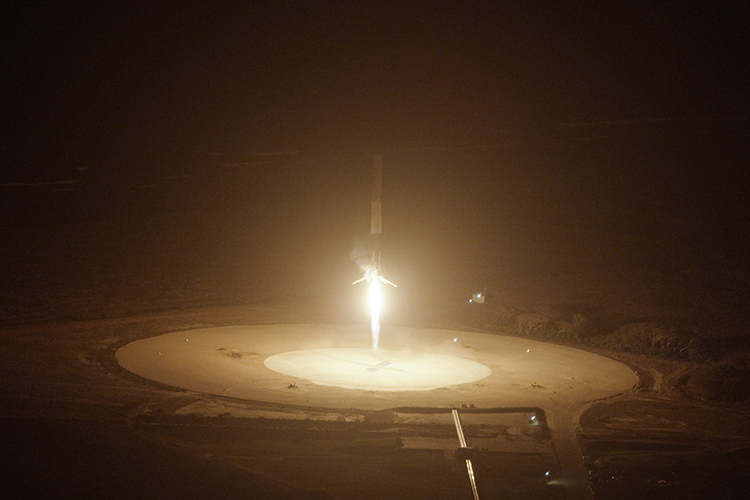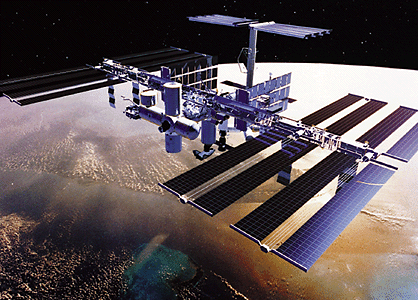One Giant Leap for Reusable Spacecraft
Tuesday, December 22nd, 2015December 22, 2015
Last night, Space Exploration Technologies Corporation (commonly called SpaceX) made history when it landed a rocket on Earth. Although landing probes on other bodies or placing people into orbit is usually the goal of space travel, SpaceX’s achievement promises to make spaceflight cheaper and more accessible in the near future.

SpaceX’s Falcon 9 rocket lifts off from Cape Canaveral Air Force Station in Florida on Dec. 21, 2015. The private space exploration company made history after the rocket successfully delivered communications satellites into orbit and then landed back on Earth. Credit: SpaceX
A rocket is a type of engine that pushes itself forward or upward by producing thrust. Unlike a jet engine, which draws in outside air, a rocket engine uses only the substances carried within it. As a result, a rocket can operate in outer space, where there is no air. The word rocket can also mean a vehicle or object driven by a rocket engine.
SpaceX is a private space exploration company founded by South African entrepreneur (business developer) Elon Musk. One of the company’s multistage Falcon 9 rockets lifted off from Cape Canaveral Air Force Station in Florida last night in a successful attempt to deliver communications satellites into orbit. In traditional multistage rockets, discarded stages fall to Earth and burn up in the atmosphere. Last night, however the first stage of SpaceX’s rocket descended back to Earth, slowed by its engines, and landed vertically on a pad using three large retractable legs.
The landing is a major victory for SpaceX, which had made two earlier unsuccessful landing attempts. In June, the company suffered embarrassment when a rocket launched to resupply the International Space Station exploded shortly after takeoff.
The (relatively) gentle landing should allow much of the first stage to be reused in future launches. For now, SpaceX employees are inspecting the rocket and studying how its parts can be safely reused. But as such landing and reuse become more routine, they will allow the cost of spaceflight to plummet. In November, space company Blue Origin, owned by American businessman Jeff Bezos, successfully landed a small rocket after a brief suborbital flight. But SpaceX’s rocket was far larger and part of a more complex orbital flight. Both companies are engineering new ways to make spaceflight cheaper and more reliable.
Additional World Book articles:



